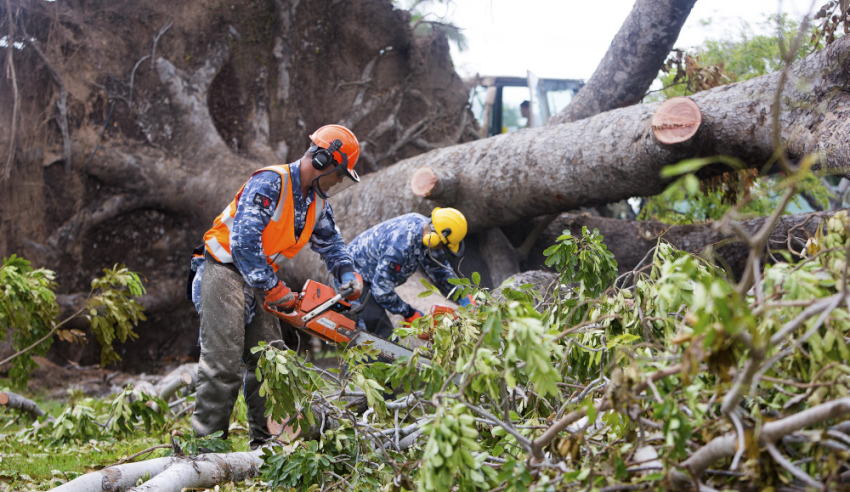The foreign affairs, defence and trade committee inquiry into the implications of climate change has handed down its final report, with several recommendations given to the Department of Defence and national security agencies.
To continue reading the rest of this article, please log in.
Create free account to get unlimited news articles and more!
The Senate inquiry heard from climate change groups and many government departments including the Department of Defence, which warned climate change is a “threat multiplier” increasing the risk of conflict and pushing up the demand for Australian Defence Force operations nationally and internationally.
While the inquiry heard that the effects of climate change act as "threat multiplier", the committee concluded it is also a "burden multiplier" creating direct capability threats for Defence, including additional stress on military resources like ADF estate, personnel, support systems, facilities, supplies, collective training activities and command structures.
Defence warned that its bases and equipment could be damaged by rising sea levels, storm surges, coastal erosion and drought, with a large number of key Defence installations at or just above sea level and much of Australia's infrastructure ageing, adding an increased likelihood of climate change impacting Defence base operations in the short to medium term.
The Climate Council also pointed out that military bases rely on civilian infrastructure, such as water, power and the transportation network, meaning extreme weather events like flooding and bushfires could also impede Defence's operations, disabling critical military infrastructure at times when rapid mobilisation is needed.
The Climate Council expressed concern that personnel undertaking training and exercises will be subjected to extreme weather events and more frequent and intense heatwaves, undermining ADF capability.
Climate change also affects the spread of conditions such as malaria, infectious diseases, respiratory issues and food-borne infections, all of which may undermine the health of Defence personnel exposed to areas with a high rate of these infections.
The Australian Psychological Society and Defence also described how mental health problems can be exacerbated by climate change, for example, following disasters or prolonged exposure to difficult operational conditions.
In the eight recommendations handed down by the committee, Defence has been asked to consider releasing an unclassified version of the work undertaken by Defence to identify climate risks to its estate. The committee also recommended that Defence create a dedicated senior leadership position to assist in planning and managing the delivery of domestic and international humanitarian assistance and disaster relief as pressures increase over time.
The committee also recommended the government consider the need for a dedicated climate security leadership position in the Home Affairs Portfolio, which includes the Australian Border Force, Australian Criminal Intelligence Commission, Australian Federal Police and the Australian Transaction Reports and Analysis Centre. This role would facilitate co-ordination on climate resilience issues, including disaster risk reduction, infrastructure planning, community health and wellbeing, and emergency management.
All national security agencies were also asked to increase their climate security knowledge and capability by encouraging participation of staff in available courses.

 Login
Login







